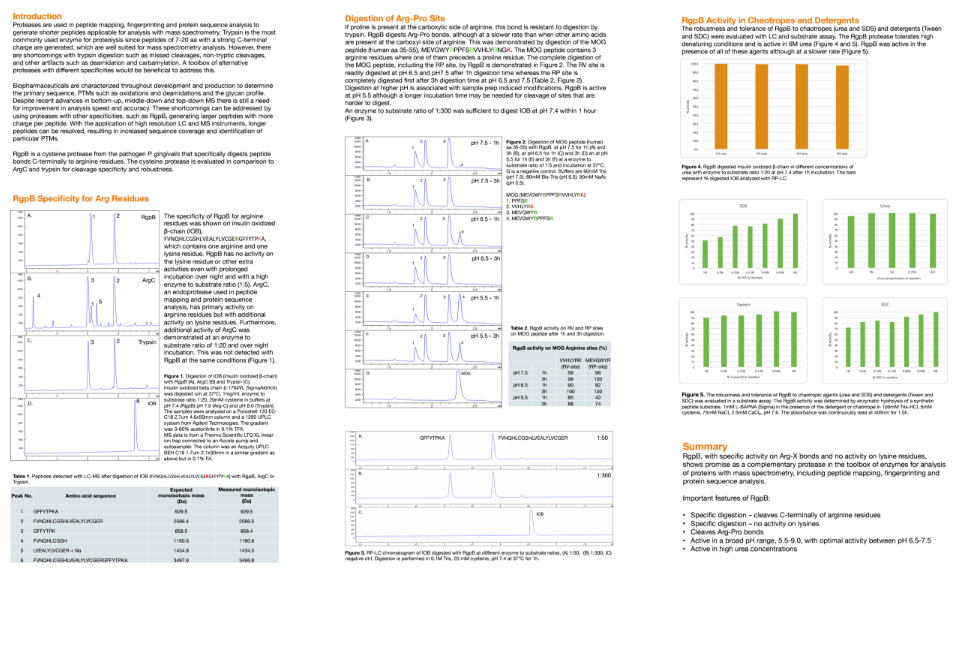
RgpB - an Arginine Specific Protease with Applications in Proteomics
Jonathan Sjögren, Genovis AB, Lund, Sweden
Stephan Björk, Genovis AB, Lund, Sweden
Malin Mejàre, Genovis AB, Lund, Sweden
Maria Nordgren, Genovis AB, Lund, Sweden
Magdalena Widgren Sandberg, Genovis AB, Lund, Sweden
Per Brunmark, Lund Life Science Incubator, Lund, Sweden
Fredrik Olsson, Genovis AB, Lund, Sweden
Proteases are used in peptide mapping, fingerprinting and protein sequence analysis to generate shorter peptides applicable for analysis with mass spectrometry. Trypsin is the most commonly used enzyme for proteolysis since peptides of 7-20 aa with a strong C-terminal charge are generated, which are well suited for mass spectrometry analysis. However, there are shortcomings with trypsin digestion such as missed cleavages, non-tryptic cleavages, and other artifacts such as deamidation and carbamylation. A toolbox of alternative proteases with different specificities would be beneficial to address this.
Biopharmaceuticals are characterized throughout development and production to determine the primary sequence, PTMs such as oxidations and deamidations and the glycan profile.
Despite recent advances in bottom-up, middle-down and top-down MS there is still a need for improvement in analysis speed and accuracy. These shortcomings can be addressed by using proteases with other specificities, such as RgpB, generating larger peptides with more charge per peptide. With the application of high resolution LC and MS instruments, longer peptides can be resolved, resulting in increased sequence coverage and identification of particular PTMs.
RgpB is a cysteine protease from the pathogen P. gingivalis that specifically digests peptide bonds C-terminally to arginine residues. The cysteine protease is evaluated in comparison to ArgC and trypsin for cleavage specificity and robustness

Organized & Produced by:

POB 4043, Ness Ziona 70400, Israel
Tel.: +972-8-9313070, Fax: +972-8-9313071
Site: www.bioforum.co.il,
E-mail: bioforum@bioforum.co.il